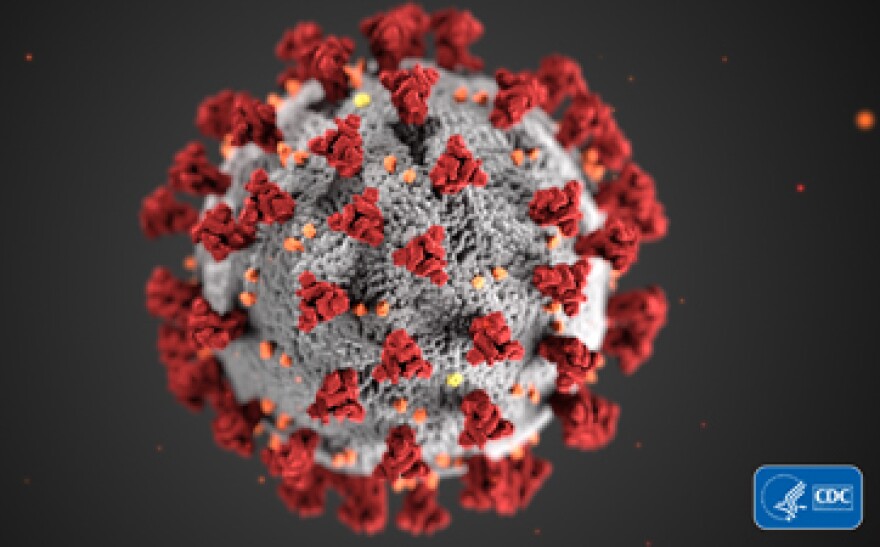With the situation regarding the COVID-19 pandemic changing rapidly, we’re compiling news and information here about COVID-19. For more community updates, information about vaccines, reopening plans and public health orders, check out our COVID-19 Resource Center.
How many known cases are in Kansas?
As of Sept. 17, the Kansas Department of Health and Environment has confirmed 396,907 cases of COVID-19 (+3,211 since last report) and 5,865 deaths (+64).
Sedgwick County, which includes confirmed cases not finalized in KDHE's count, says as of Sept. 17 there have been 60,994 confirmed cases (+296 since last report) and 721 deaths (+7). The positive test rate is 9.1%. The county does not report active cases or recoveries.
The U.S. has had more than 41.3 million confirmed cases of COVID-19, and more than 663,000 deaths.
What's the status of the vaccine?
Kansas is currently vaccinating anyone 12 and older. Find answers to some frequently asked questions — including how safe the vaccines are — here.
As of Sept. 17, 1,563,136 Kansans have received the first dose of vaccine. 50.9% of Kansans have received at least one dose; 45.5% are fully vaccinated. Find vaccine providers here.

How do I get tested for COVID-19?
If you are experiencing symptoms and think you may have been exposed to the coronavirus, contact your regular doctor to discuss whether testing might be needed. (Don’t show up unannounced, say health care providers.)
If you don’t have a regular doctor, Wesley Healthcare Chief Medical Officer Lowell Ebersole says you can visit one of the hospital’s facilities for screening — but again, call ahead first.
You can find free, walk-up testing sites that don't require appointments at gogettested.com/kansas. Testing is available for people who aren't experiencing symptoms.
The Sedwick County Health Department offers free tests at several sites around the county, as well as mobile testing services, to residents even if they don't have symptoms. Call 316-660-1022 to schedule an appointment.
Some community health clinics in Wichita also are offering free testing by appointment, including HealthCore Clinic.
How do we prevent the spread of the virus?
Basically, health leaders are still recommending good hygiene, social distancing, and face masks — even after you get vaccinated.
Gov. Laura Kelly issued a second statewide mask mandate in November that she's hopeful will lead to more compliance than an earlier order signed in July.
The city of Wichita allowed its mask mandate to expire in October, but is allowing Sedgwick County to enforce its health order within city limits.
KDHE still recommends staying home when possible to avoid exposure to the virus, washing your hands frequently, and avoiding touching your face.
What is the coronavirus?
The Centers for Disease Control and Prevention defines coronaviruses as "a large family of viruses that cause illness ranging from the common cold to more severe diseases."
The “novel coronavirus” is the seventh known coronavirus the U.S. has dealt with, says Dr. Margaret Hagan with Infectious Disease Consultants in Wichita. Four strains are mild and basically cause the common cold. One strain causes the Severe Acute Respiratory Syndrome (SARS) that broke out in 2002; another causes the Middle East Respiratory Syndrome (MERS), a more severe illness that broke out in 2012.
The most recent strain of the coronavirus can lead to Coronavirus Disease 2019, or COVID-19. Symptoms include shortness of breath, fever and coughing.
How does the virus spread, and who’s at risk of getting it?
Coronaviruses spread primarily through respiratory droplets — like through coughing and sneezing, says Sedgwick County epidemiologist Kaylee Hervey. Anyone can be at risk of infection.
Hervey says much as 80 percent of people who are infected (and infectious) won’t exhibit any symptoms.
“That in a sense makes it more dangerous than the flu in that asymptotic people may be spreading it,” she told an Engage ICT: Democracy On Tap panel.
State data shows Black Kansans are three times more likely to test positive for COVID-19 than white Kansans, and more than seven times more likely to die from the virus. Latinos are also about three times as likely as white people to test positive for COVID-19.
Other information on COVID-19
We’ll be updating this page daily as more information becomes available. Other valuable websites for you to stay informed include:
- Sedgwick County Health Department COVID-19 resource page
- Kansas Department of Health and Environment coronavirus updates
- Centers for Disease Control and Prevention
Have any questions you want to see answered by one of KMUW’s reporters? Send us an email at news@kmuw.org.


